On this site we talk a lot about “worldschooling“. It’s how our kids were educated on the road, learning from the world around them. It’s as natural as breathing to me, wherever we go, we find the learning. Not everyone gets this concept. I’ve just been on a call with a lady on the other side of the world, she was wondering how we turned “holiday” or “vacation” into education. She didn’t get the concept. She said she’d be downloading worksheets and lessons from Teacher Pays Teacher (or whatever that site is called.). That’s not the way we do it! It was such a valuable conversation for both of us, we thrashed out a lot of ideas in home/world/schooling, blogging, gateways to becoming a digital nomad and more. It gave me the ideas for this post.
After I wrote this post it occurred to me that some UK parents may need to convice their kids’ schools that a holiday or trip in term time is educational. There are laws around this in the UK. If that’s the case, reach out, I can probably help you with that!
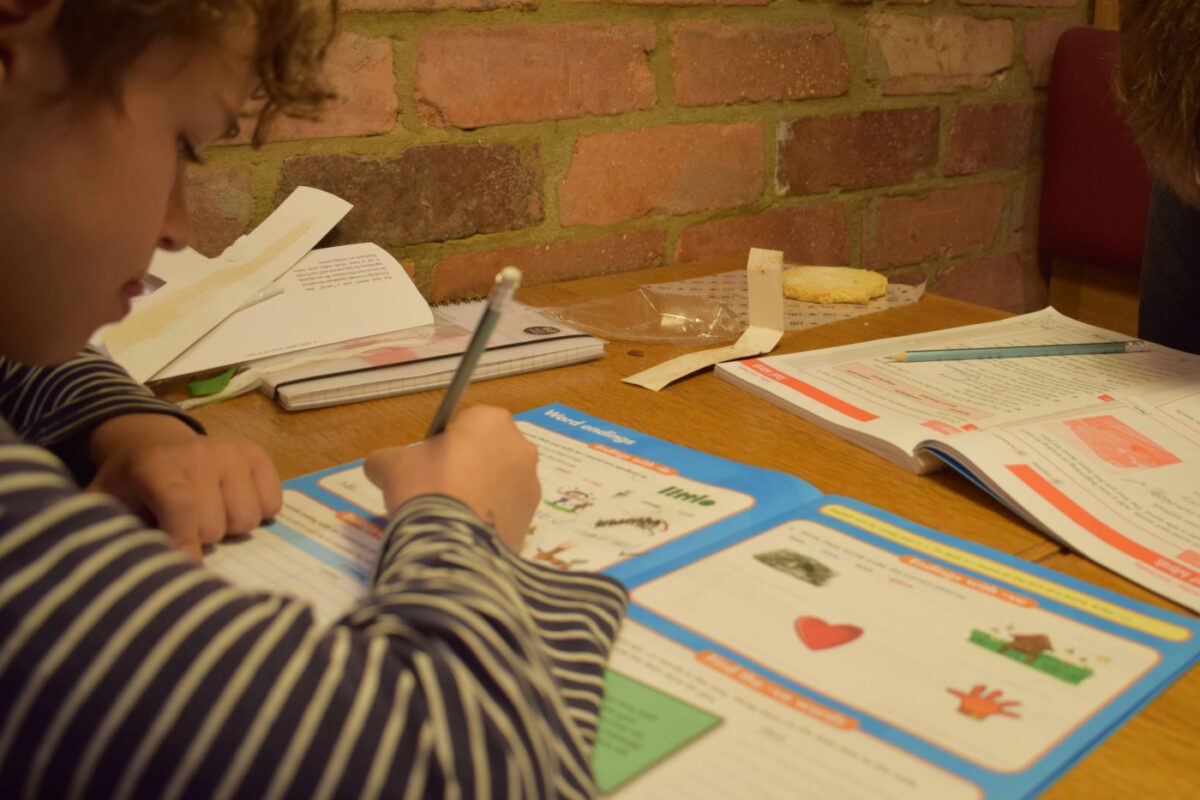
This post will be a brief one, general ideas on how to make travel educational. More detailed posts will follow, I’m going to do this by country too and provide video or printable resources. It’s a very exciting idea to me and I hope you find it useful. We’ll talk about kids (and adults) and what they can and do learn from travel.
Country-specific guides our readers have requested so far include Vietnam, Laos and Cambodia, plus a few more specific guides, Bali (indonesia) and London (UK). I will be creating these in coming weeks. If you have other places in mind, let me know! You can chat to me in our free Facebook group, “Living Differently.”
How To Turn Travel into Education
Here are 10 ways you can make travel with your kids more educational. As my kids are now grown, I always ask for their input on posts like these, some of our ideas come straight from the horse’s mouth.
We don’t mention languages here. We learned a few words in every language in every country, but we were never aiming to become fluent in second languages. It’s not our jam. If your kids enjoy languages and want to achieve that, it would be very easy to encorporate. There are immersion language classes just about everywhere.
1. Ask Your Kids Where They Want To Go or What Interests Them
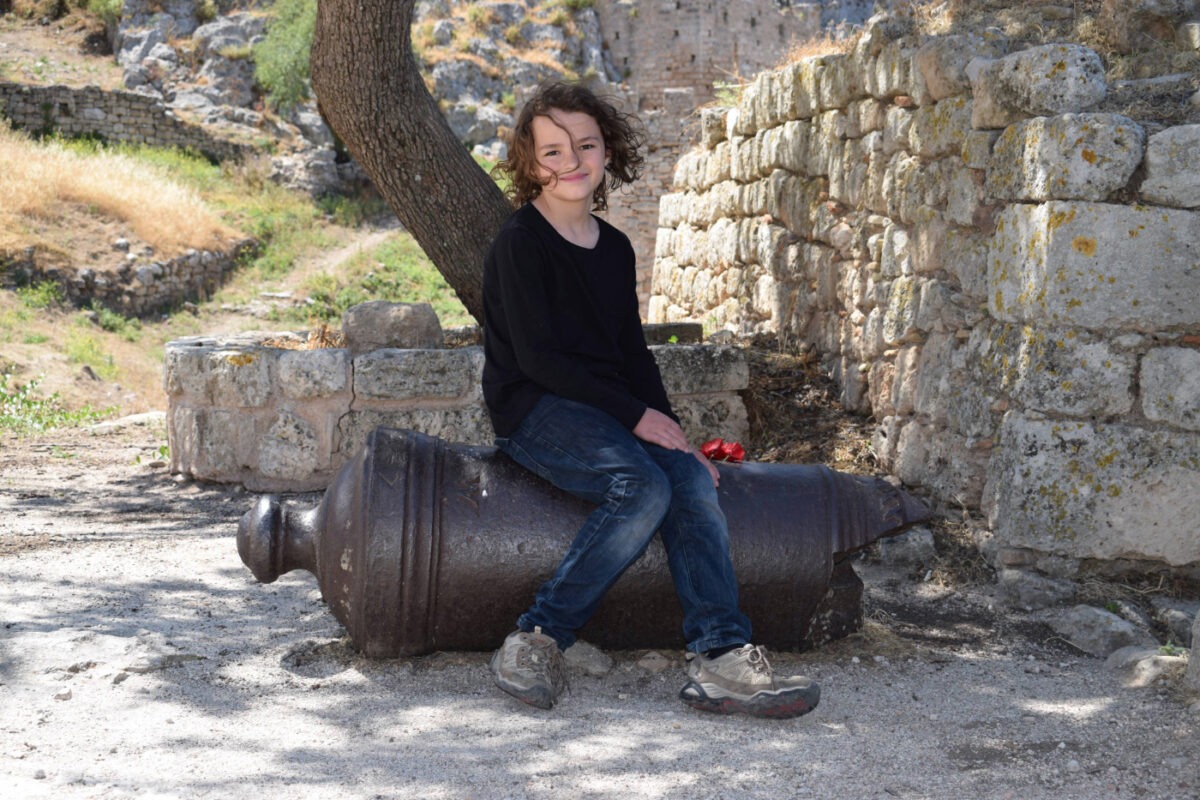
Kids have to be engaged to learn. They have to be interested and want to know more. Give yourself a head start with filling their heads with knowledge by chasing after the topics, places, things, or eras that interest them.
For instance, my kids loved ancient history thanks to Rick Riordan’s fabulous books. The fiction gave them names and places that translated into real boots-on-the-ground learning. So of course we took them to Egypt and Greece.
If you hear the names of those two countries and imagine sunning yourself on a Red Sea Beach or sipping Retsina in a Greek taverna, that’s not really how this works! You can do those things (I love Retsina!) but you need to go a bit deeper. Our sort of travel is not “vacation” or “holiday” travel. We’re looking for the learning everywhere we go!
In Egypt we toured as many ancient sites as we could. A guide is very helpful in explaining history, hieroglyphs and more.
In Greece we visited Olympia (chasing The Statue of Zeus at Olympia, one of the Seven Wonders of The World). So obviously it was a good time to recap on those 7 Wonders. (If you don’t know them, we have a post on the 7 Wonders, Ancient and Modern).
We got ourselves to Delphi (not far from Athens by road) and the kids were our tour guides, they even knew the layout of the Delphi ruins from playing Assassins Creed Odyssey. We went to a whole bunch of other historic places on The Greek Mainland too, it’s all in this Greek tour write-up.
Incidentally, for learning about The French Revolution in a different way, Assassin’s Creed Unity is very good for older kids.
Here’s a big tips for museums and historic sites, let the kids be interested in whatever they want to be interested in. You can’t force them to learn what you want them to learn at that particular time. They’ll find something!
2. Cover School Learning And General Knowledge
Do you only want your kids to learn what they would cover on the school curriculum? Have you read the school curriculum? I’ve read quite a few and my kids have sat exams. There’s not much on them. My son’s history GCSE had just WW2, The Vietnam War, and the French Revolution, for instance. So was all that learning about Ancient Egypt, Mesopotamia and Thai history pointless? Of course not, it’s cool and interesting stuff and it goes to make a knowledgeable person.
If you want an overview of world history, in a fun way, go to John Green’s History on YouTube. The boys watched that whole series multiple times.
I met a lady recently (she had been to school), she didn’t know Nepal was a country and thought it may be in Africa. She certainly didn’t recognise the flag. I guess they don’t “teach” kids in school where Nepal is. Is it an important thing to know? Maybe, maybe not. But it stops you looking stupid if you don’t know basic stuff.
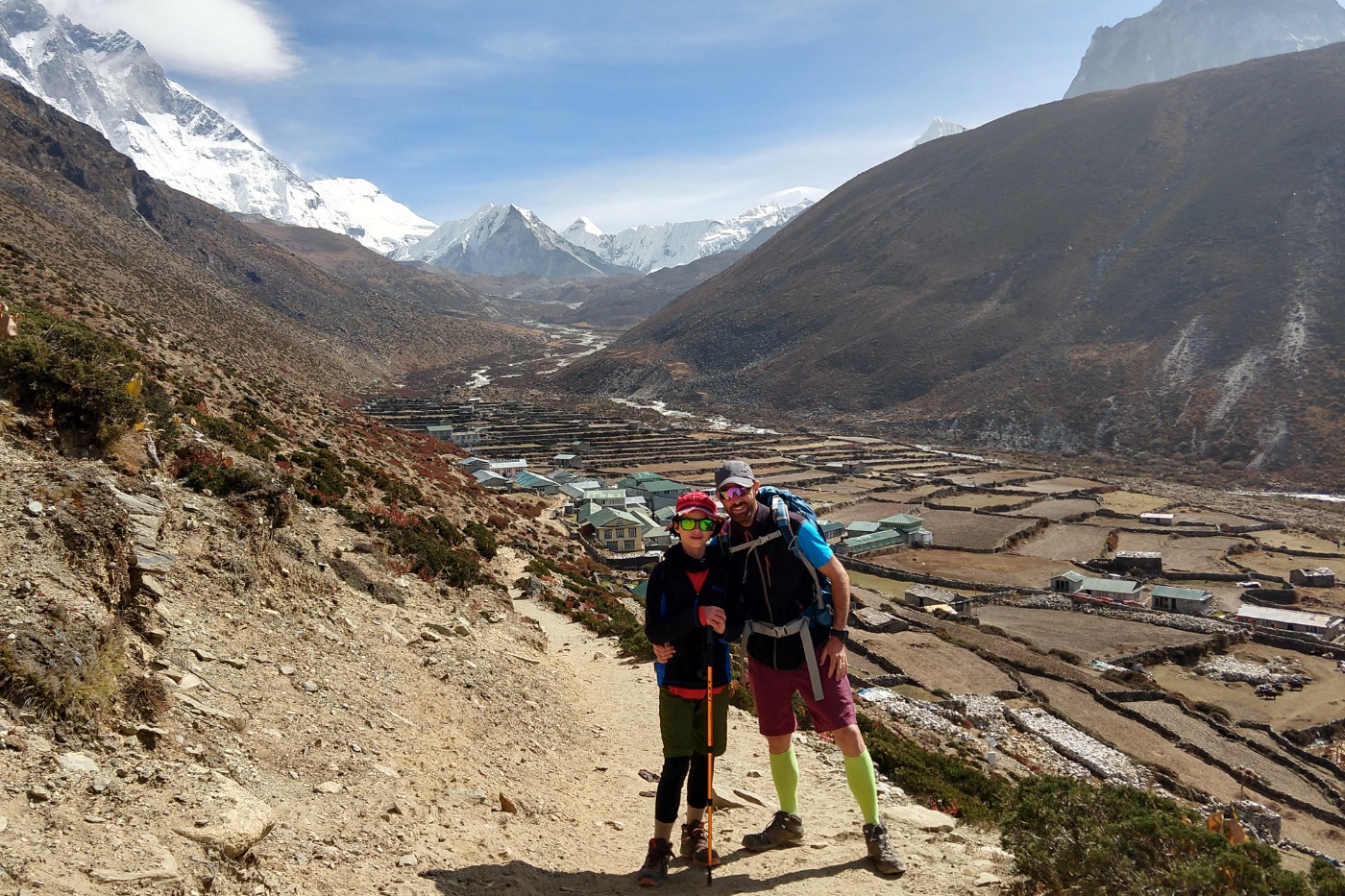
Most curricula are available online. If you ONLY want to cover topics that might be on an exam, you can do that. You’ll need to read up on it and find out what topics your kids will be expected to know.
3. Don’t Forget That Physical Activities are Education Too!
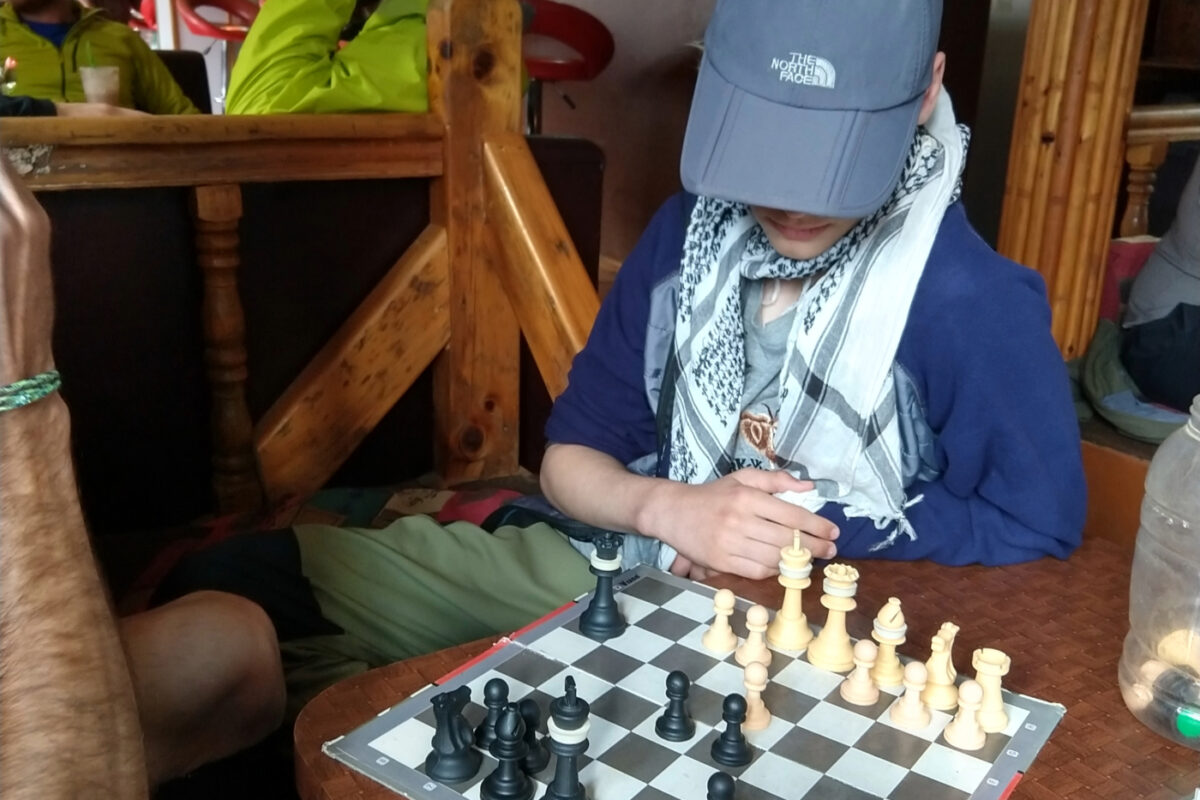
In schools kids do other things beside factual lessons. The play sports, they may take cookery or woodwork, some play musical instruments. Kids attend after school clubs too. I went to science club, my brother went to chess club.
All this is even better when it’s built into an education outside school!
The kids can take up whatever sports or activities they please.
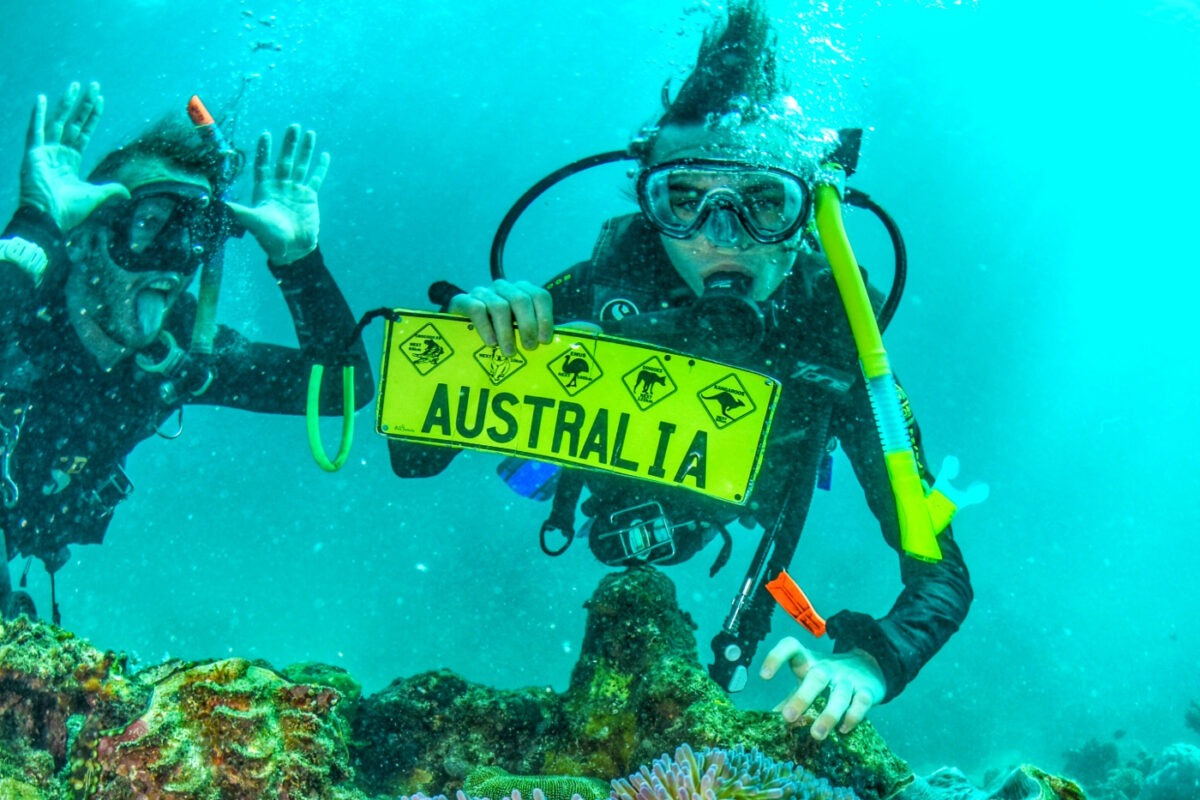
Team sports may be hard, but our family has never been into any team sport so we’re not bothered. We’re all runners and cyclists, we ski, scuba dive and snorkel. The kids took high diving lessons and can ride camels (but not horses, yet), they got their lifesaving certifications. That’ll do for sport.
Instead of chess club they played with their dad. I hate board games! As part of my parenting endeavours I did play the odd tedious game of Monopoly and kicked a ball around for time to time, but these things aren’t for me.
4. Art is an Important Component of Education
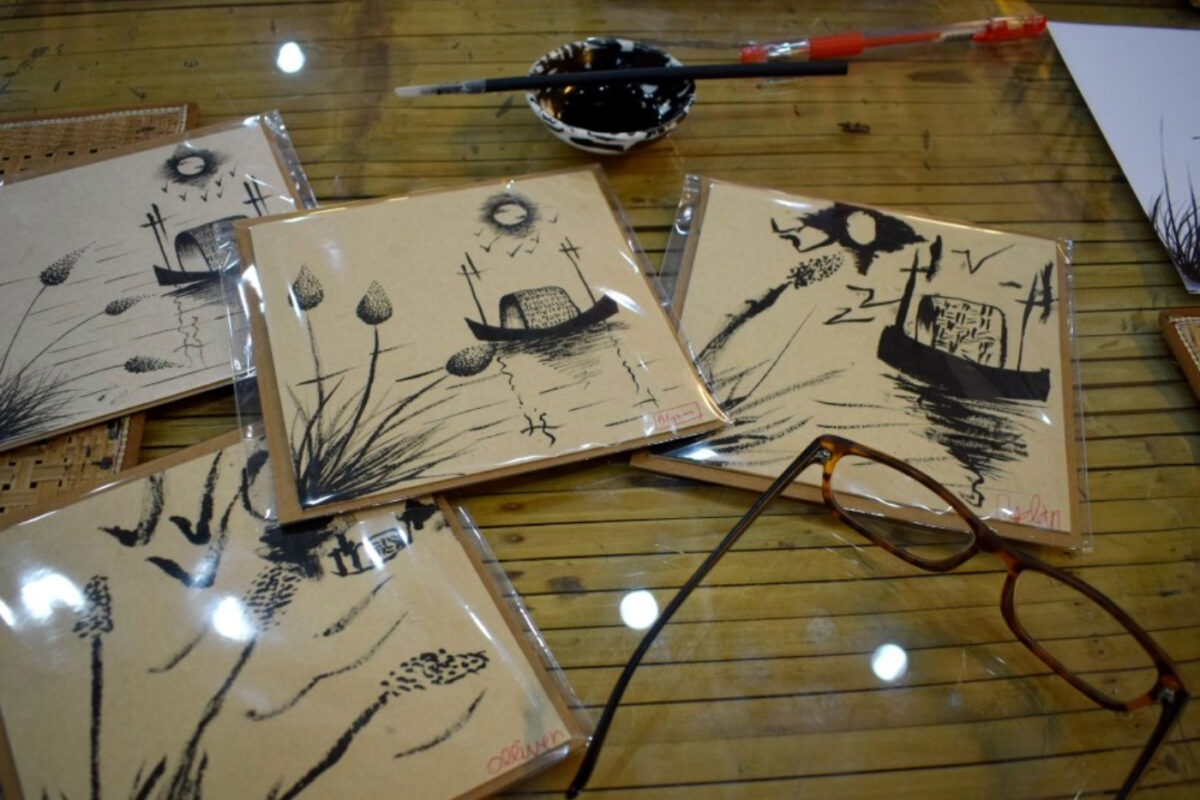
There are art classes everywhere! This link gives you an example of an art class in London, just search “art class, name ofany city”. Because you travel and have plenty of time on your hands, you have way more access to the art of the world.
Admire Arabic art and learn a little about why it is the way it is. Visit the major art galleries of the world. We enjoyed the guided tours and kids’ audio guides at London’s Tate Modern and National Portrait Gallery. Find the more niche art museums, my favourite in the world is the Theatre Museum Dali, in Catalonia Spain.
Or enjoy the more “arts and crafts” scenes at local markets. In churches and temples find Christian frescoes (Assisi, Italy) or depictions of Buddhas’s life and the Ramayana (Bangkok). Learn something about them! Visit the Sistine Chapel (Vatican City), we haven’t yet, but we might.
Visit wherever you or your kids will find interesting.
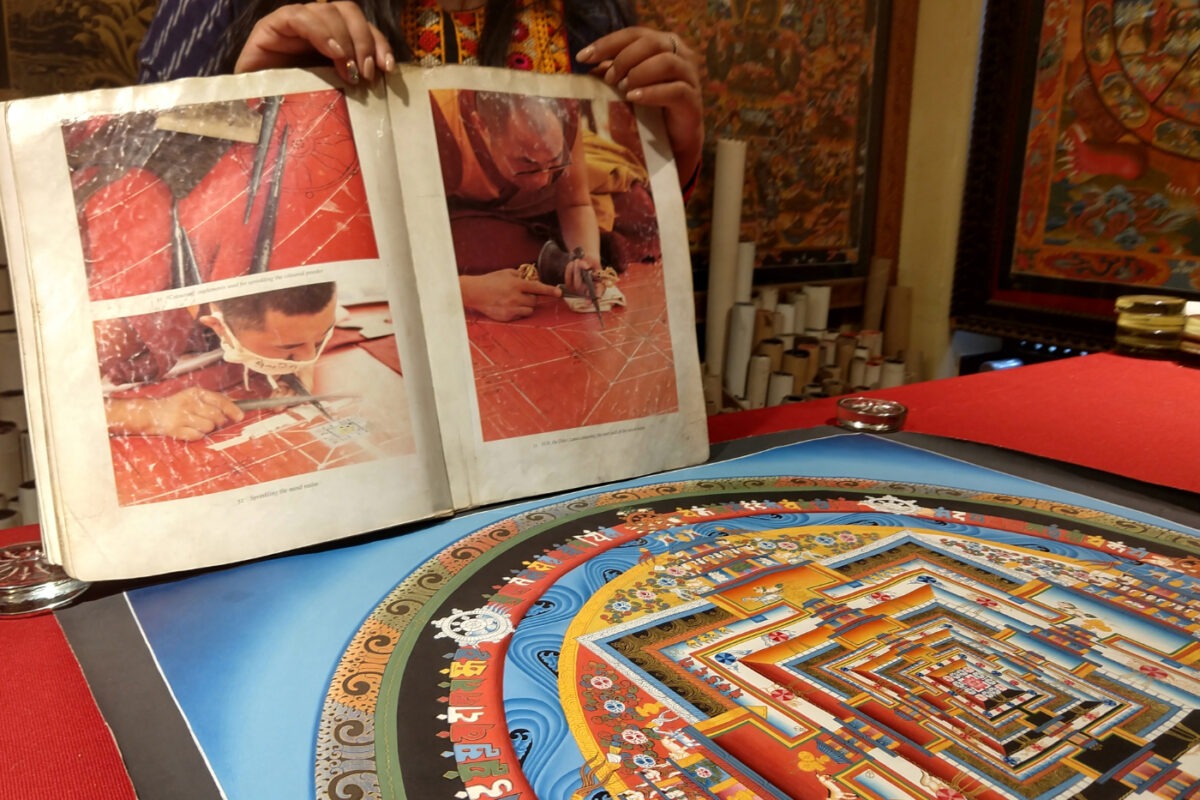
We also learned a lot from the thankas of Nepal. There are several hanging on my wall today. Any shop owner will explain what the meanings are behind the mandalas.
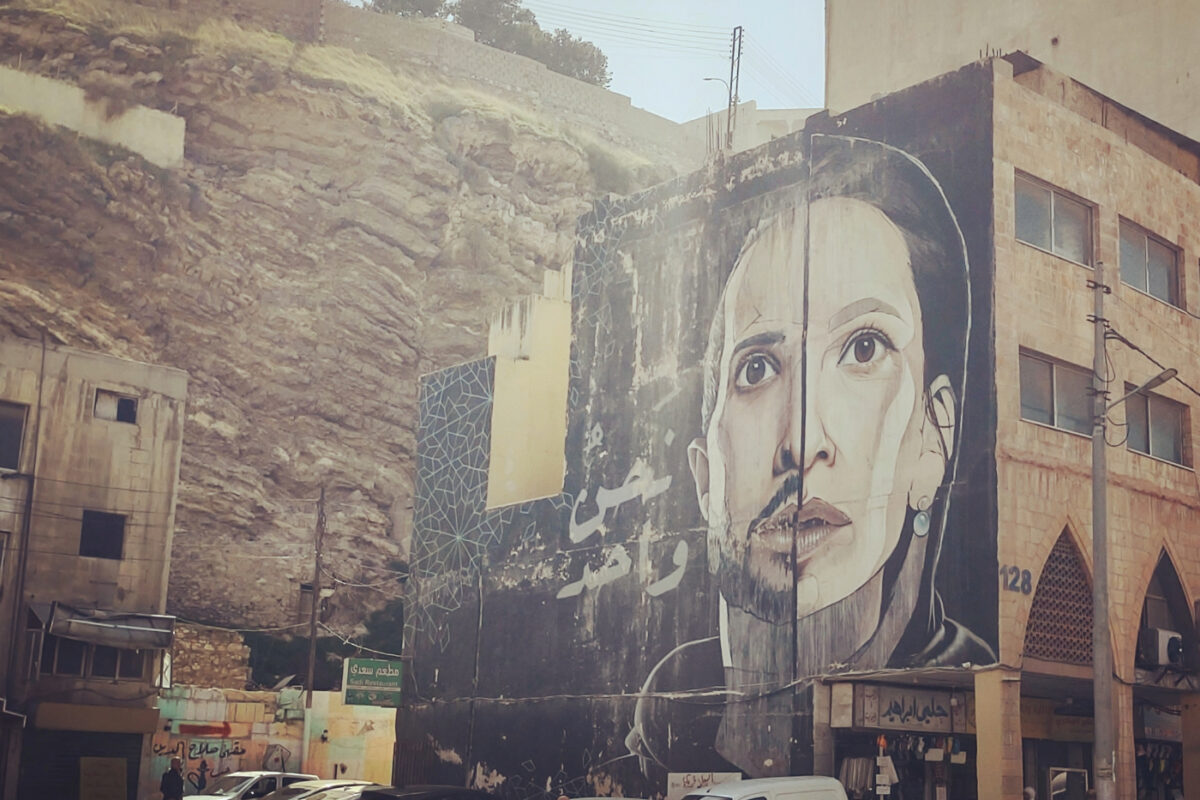
When we were enjoying the statues at the Burch Memorial in Ipoh Malaysia we were interested in a mysterious “missing” figure. We searched for answers and learned a lot in the process. Just keep exploring and asking why!
I know I’ve learned more about art through travel, experimentation, and curiosity, than I ever did in school.
5. Find Creative Ways To Add Science To Your Worldschooling Curriculum
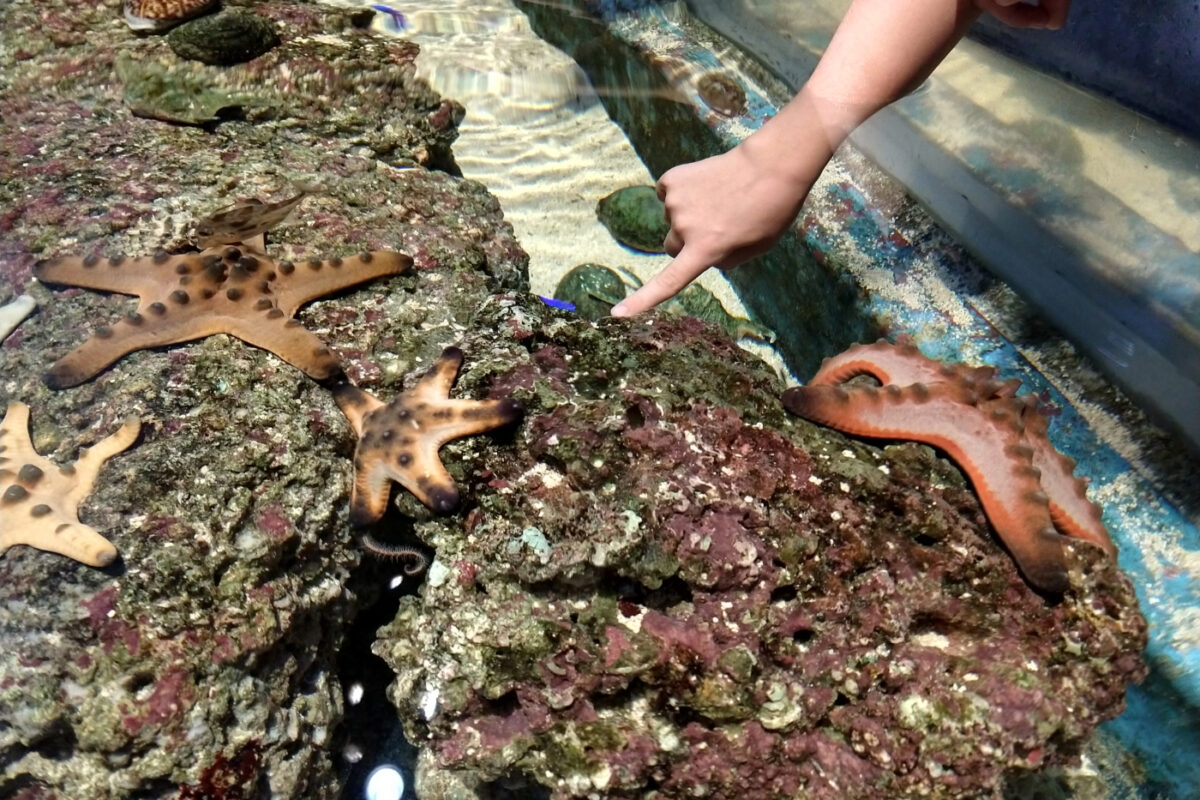
How do kids learn science through travel? Science is a bit harder than Geography or History, but it’s doable.
How I did it with my kids was simply to talk about the science of everything they saw. So at the beach, we classified creatures and looked for saturated solutions and evaporation.
Up a mountain we’d cover atmospheric pressure and why we get altitude sickness, plus how the body adapts to that. On top of that, there were health issues to cover, how and why we get sick, how to not pick up germs, why do we need vaccinations for this country, and more.
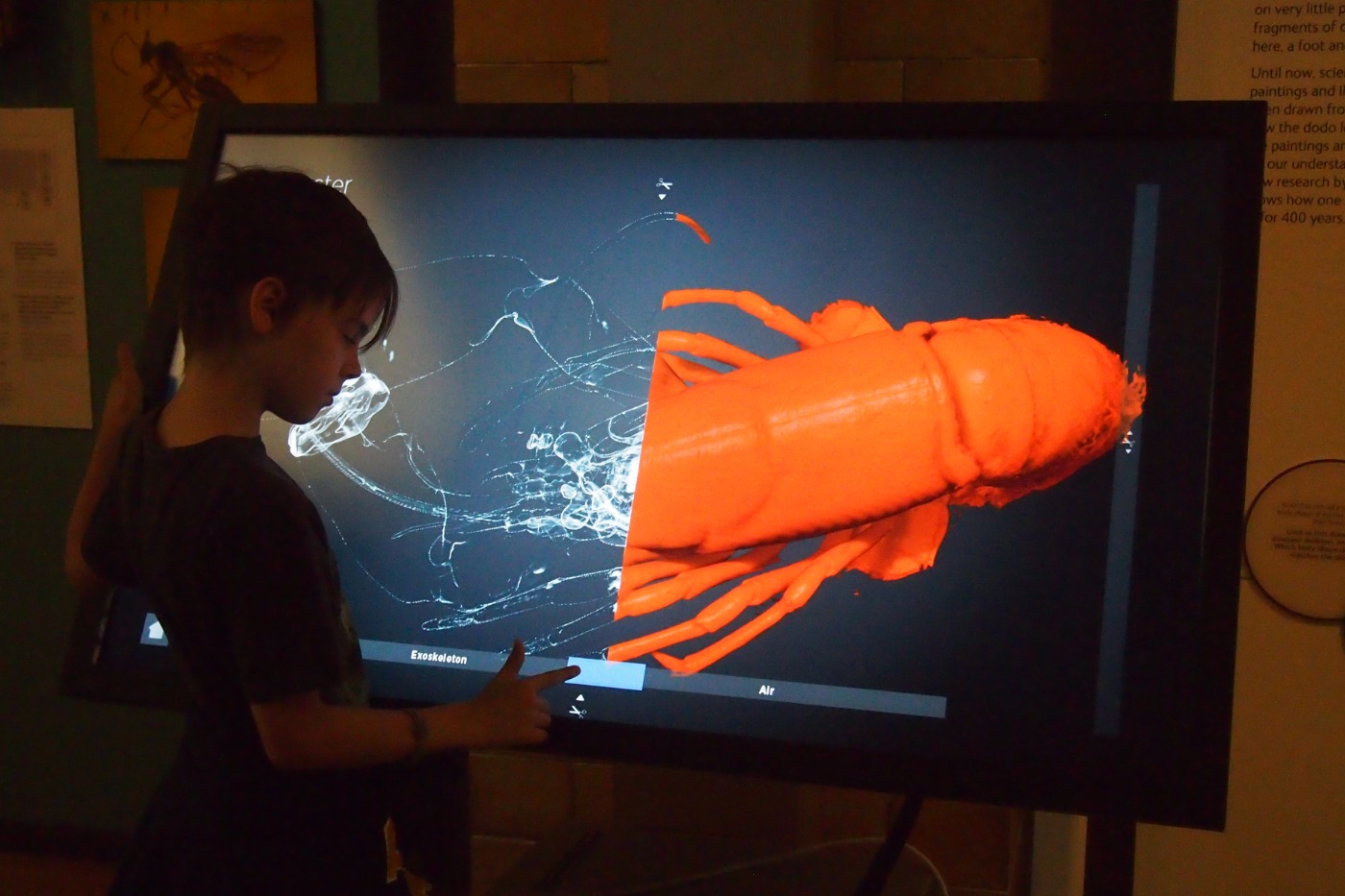
But there are also obvious places to learn more science, science museums are awesome, some are very hands-on. We were lucky enough to visit the Tesla Museum in Belgrade, too. There are loads of small, niche science museums around the world. (Check out the Grant Museum of Zoology in London.)
The zoo is a great place to cover science, as is a snorkel tour of any reef. Your snorkel guides will explain and you may find a tour with a marine biologist talk (as on The Great Barrier Reef).
Of course, kids learn a lot of science from TV and YouTube videos. We did use science workbooks sometimes and also some online resources, but the bulk of their science came from Mum’s chatter. I was that mum with the periodic table jigsaw and science facts trivia games.
When the kids eventually started “school” science lessons, they found the content easy. What was new to them was interpreting graphs of experiment results and so on. That was maths and a skill you need to learn for exams. I was a professional scientist – I never needed to do any of that ever again!
They opted not to take Physics, just Biology and Chemistry, and I don’t blame them!
6. Busting Myths, Prejudices, and Stereotypes is a Big Part of a World Education
This was important to me. I really didn’t want the kids to grow up racist or xenophobic, nor to believe what people (including the media) have to say about other countries.
Even generalisations and stereotypes like “British food is bad” or “the Brits have bad teeth”, they were easy to bust. They’ve been there done that, and know the truth. The good and the bad of 50+ countries. The people with the opinions have often never left home.
7. Preparation For Entry into The Adult World is Easier with a Worldschooling Method.
Why is entry into the adult world, or the workforce, easier for kids with a bit of travel under their belts? It’s because they’ve always lived in the adult world. They were never segregated. They hung out with people of all ages, races and religions. Those are the same people they’ll be working alongside, if they choose to “get a job.”
One of mine has had a job for about 4 years now. I think his background stood him in good stead and he was far more ready to work than I was after university. I didn’t have a job until I was 21. He was 16. I was scared of “people”. They were always as scary to me as most teachers were. Maybe I’m weird, but I’ve done alright.
8. Add Skills For a More Well-Rounded Education.
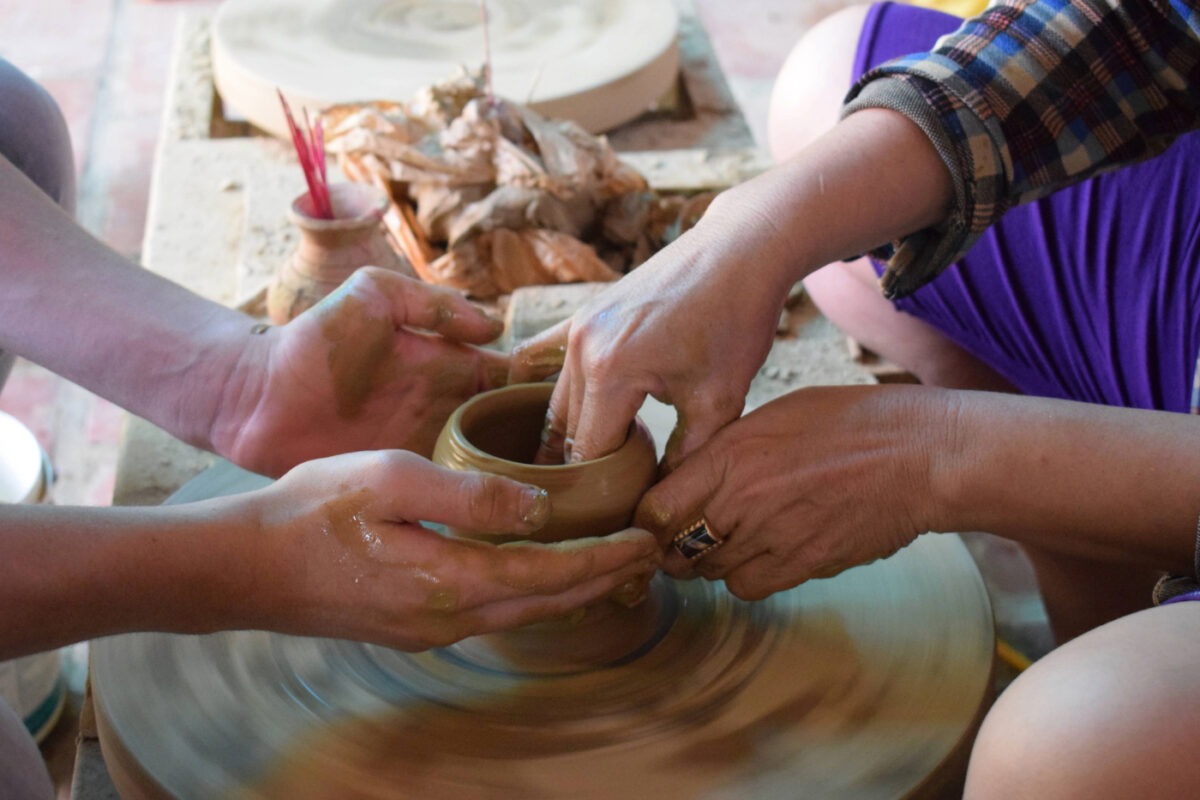
Practical courses they took included stonework, metalwork, pottery, and of course, cooking. Cooking classes are great, one of our favourite things!
I’ve heard of other kids learning to fish with locals in Asia or taking extended dance courses.
All of this is undoubtedly education and it’s easy to build into travel.
To find activities like these just go to GetYourGuide and search! (this page has courses and workshops in London, from paddleboarding, to dance, to art.)
I’m not a big fan of Worldschooling hubs or groups, but classes like this may be more economical to organise for groups of kids, but of course, then you won’t have the 1 on 1 attention.
9. Maths. How Do You Worldschool Maths?
Simple everyday maths like adding and subtracting, telling the time, understanding timetables, making change, currency conversions, shopping and haggling, cover a lot of basic maths for younger children. All of this is learned naturally through everyday life.
This is all the maths most people need to live normal lives. You can world school or un school maths to this junior school level. Board games, card games and computer games also help with numeracy.
We chose to use some workbooks, an online program (Studyladder) and some Khan Academy maths as they got older. It was never easy to get them to do any kind of formal maths. It was tedious, a chore, boring. They did not want to learn maths. But we got there.
My kids went on to sit exams in maths. No, you cannot teach kids to do quadratic equations by visiting the pyramids. That’s not a thing!
The kids have to learn the maths that will be on the paper and learn the correct way to show their workings to get full marks. My kids learned all of this maths at around 15 years to 16 years old with help from an online school course, an online tutor, and from me. It was easy enough to do and I’m now much better at maths than I ever was at school.
Why the tutor when they had a teacher? The teacher was dreadful, the tutor was much better. We found her through Outschool.
10. Don’t Neglect Reading.
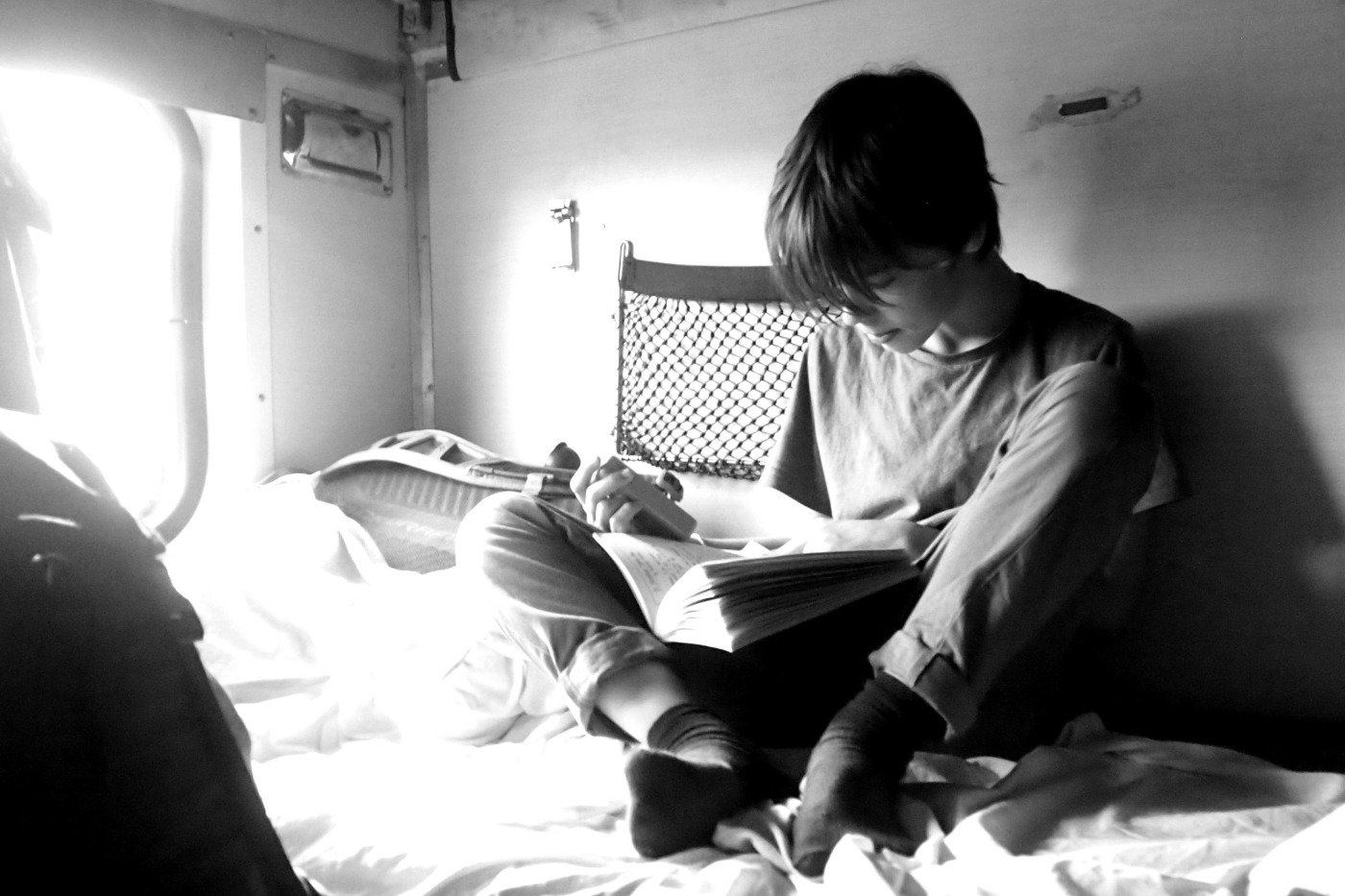
Get those kids a Kindle and they can read for hours on end on buses, planes, trains, ships and coaches. I’m so happy that we got our kids hooked on books early, before phones, tablets, and laptops took hold. I’m also glad that we had all of that time for them to read.
Both of my kids started reading late, 7 and about 9 yrs old. We didn’t think there was any rush and they more than made up for it as they got older. Did you know that Fewer than 3 in 10 (28.0%) of children in the UK aged 8 to 18 read daily? (source)
Mine did. A shocking number leave school functionally illiterate too. I think they read every Rick Riordan book at the time, Tolkien and Harry Potter were big favourites too. For their English Literature exams, they had to read Macbeth and Mice and Men. One of them hated Steinbeck, the other loved it. I’d already introduced them to Shakespeare in simplified forms, in TV shows (Dr Who), cartoon books, and animations. It was helpful. They’d also visited Shakespeare’s Globe in London. It all adds up. Buy “How To Teach Your Kids Shakespeare” here.
If you’re worried that your child is a late reader, just remember that we have an uncle who didn’t read until 10, in school, with a teacher for a mum. He has a doctorate today.
As they got older they stopped. I’ve not seen either of them read much in years. They’re much more likely to download a movie to watch than reach for a book.
One of them did read the whole “His Dark Materials” series recently, and the other sometimes dips into Harry Potter or Eragon. So make the most of it while you can! It’s the way it goes. I also have phases when I read and phases when I don’t.
All of that reading did a lot for their vocabulary and grammar.
RESOURCES
a. We’ve have a post about homeschool workbooks, the ones we used and more. They’re cheap, light, easy to pack, and you can make them fun by doing them together with treats or prizes. Our best tip is to take them to a cafe and associate workbooks with cake.
b. The insurance you’ll need for this style of travel will most likely be this one. Click through to get an estimate.
c. Get the kids a Kindle. Make reading a habit long before they switch to phones. This is my #1 top recommendation. Purchase one here on Amazon, The Kindle Paperwhite is easier on the eyes. Buy the case too, you’ll need it. You can get picture books and early readers on Kindle for little kids.
d. How did I get my kids to read? School failed to teach him. When I pulled him out at 7 yrs old he couldn’t read. It only took me a few weeks to get him reading Roald Dal. This is how.
e. Where do I think is the best /easiest/cheapest place to start your travel and education adventure? That’s easy, Thailand. I just booked a direct flight London to Bangkok for 400 UK pounds, which is pretty good, on a full service airline. Use our Skyscanner tips to find your best flights.
f. I think you’ll find this book interesting. “How To Hold Onto Your Kids“. I read it recently, after we’d lived this stage of our lives. It backed up most of my hunches, by guys with important letters after their name. But have they actually walked the walk? We did.
Can you save this to Pinterest?
It would be really helpdul to me, and my mission to help people to “Live Differently” if you could share this to Pinterest, hit all those “like” buttons, etc.
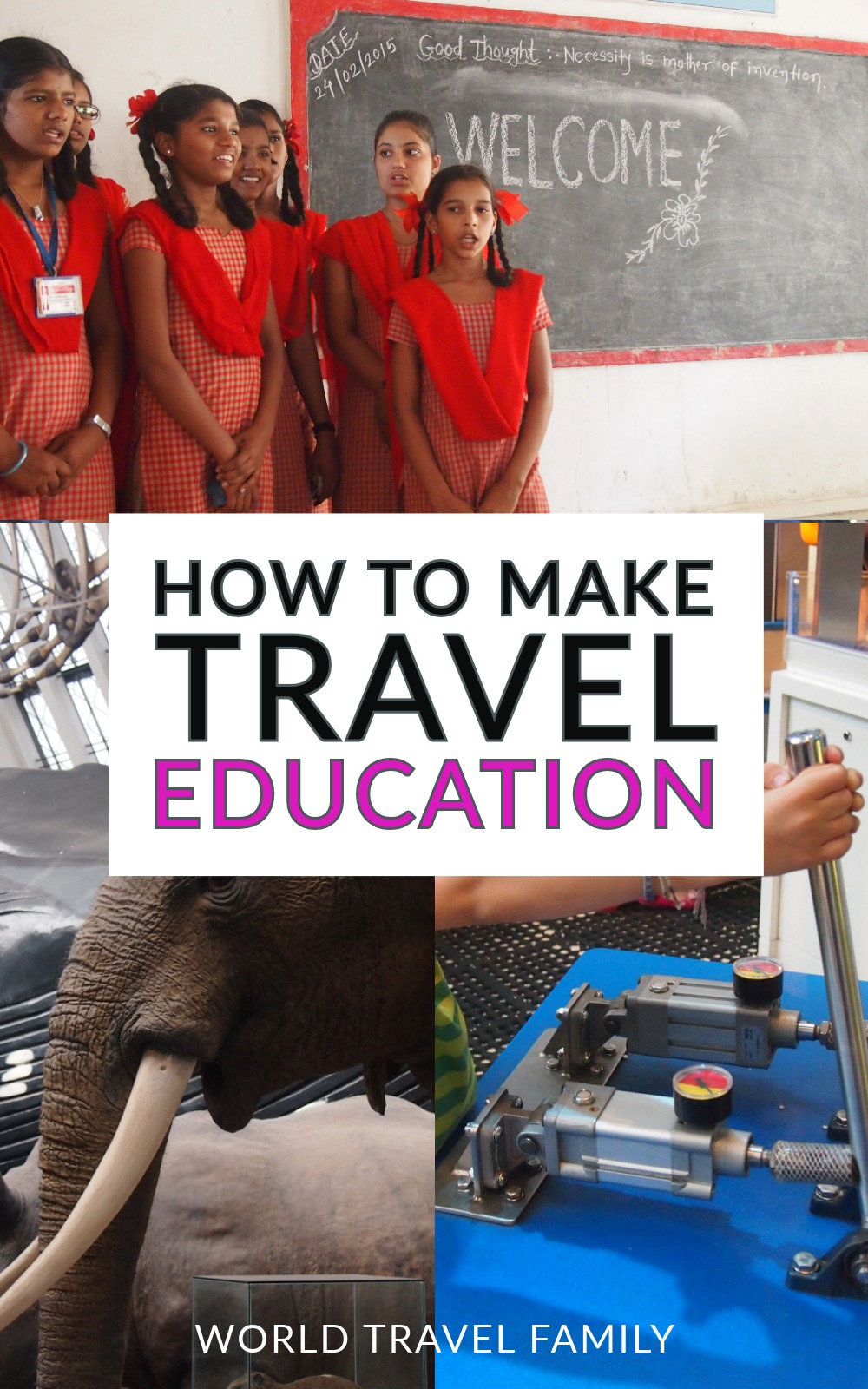
Wrap-Up
I hope this was of some use to you. I put it together because I was asked to, so I know at least one reader wanted it! I’ll be producing country or city guides to finding the learning very soon. If you; ‘re on our site and search “How to Make Travel Educational in London, Thailand, etc” they may be already published. Good luck with your journeys and you can always ask questions in the comments or in our private group. We also offer video chats with us for a small fee if you need help with anything at all.
If you'd like to hire a car during your stay, use this car rental comparison tool to find the best deal!
We also suggest you take a look at this company to get a quote for all kinds of the more tricky adventure or extended travel insurance.
Try Stayz / VRBO for an alternative way to find rentals on homes/apartments/condos in any country!

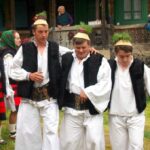
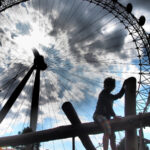




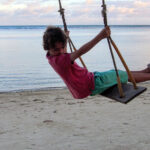

I love that your first step is ASK THEM WHAT THEY WANT TO TO DO! People so often overlook that part.
Taking my eldest, with her love of the Roman Empire, was so much fun. She was like our tour guide for many areas because she’d read so much about it. She’s a bit dirty that we didn’t make it to Pompeii before she moved out, so only her younger brothers have been.
We haven’t been, nor to Rome. Only northern Italy. I’ll get there one day.